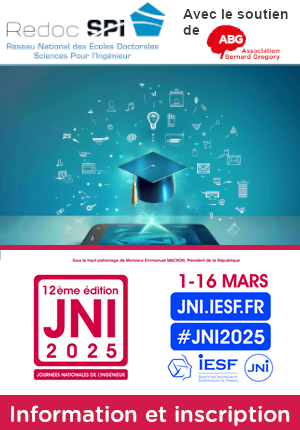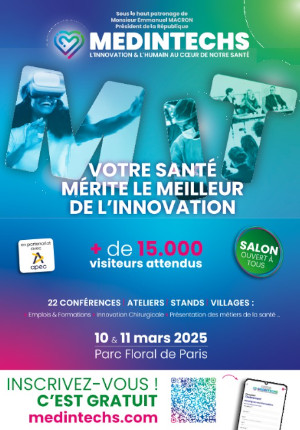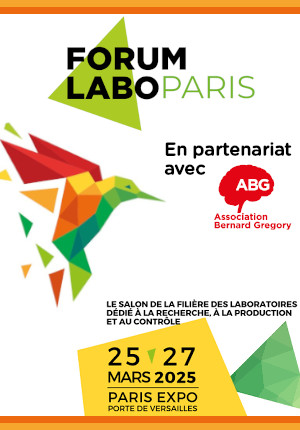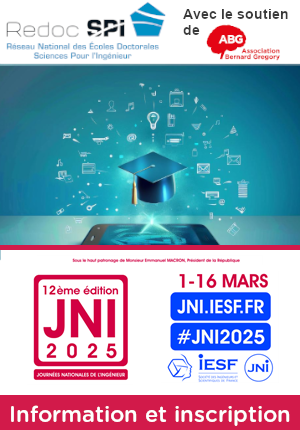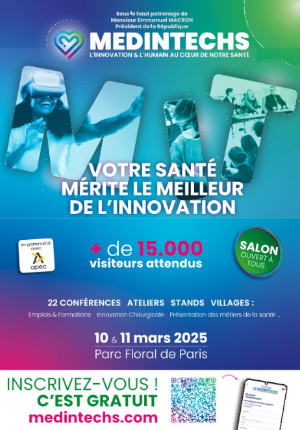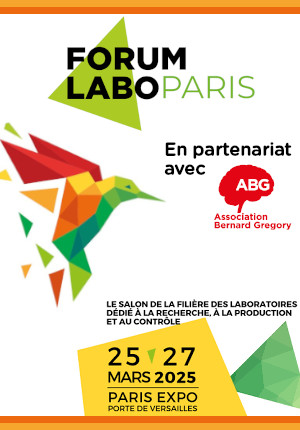Reverse Engineering for Cast Foundry Parts
| ABG-128680 | Thesis topic | |
| 2025-02-17 | Public funding alone (i.e. government, region, European, international organization research grant) |
- Engineering sciences
- Process engineering
Topic description
For many years, casting has largely remained a process with no significant breakthroughs, where lack of innovation stemmed from the profound reliance on empirical knowledge. Processes are typically shaped by the practical expertise of founders and workers, resulting in methods that may be less robust and slower to evolve. Despite these challenges, casting processes are still used for the production of complex shapes, which remains highly relevant to the modern manufacturing in shaping the future. Among the traditional hurdles, one of the current issues is the the reindustrialization of old foundry parts, some of which have long lifespans (> 40 years in aeronautics for example); in this case, previous casting tools are now obsolete and lack available documentation for their re-industrialization.
However, new techniques as 3D scanning, additive manufacturing of molds and digital simulations of the casting process open the way to new perspectives to the evolution of casting parts production. In this context, the work of the Ph.D. candidate will be focused on developing a comprehensive approach to reverse engineering of casting parts and optimizing their mechanical performance and manufacturability. Key objectives include:
- Proposing a global approach for rapid reverse engineering and digital remanufacturing of casting parts;
- Leveraging 3D scanning, additive manufacturing and digital simulations to enhance the foundry process;
- Creating digital twins to be fully consistent with scanned or produced casting parts;
- Developing a robust tool for iterative modeling based on a Design For Re-Manufacturing (DFRM) approach.
The revolution currently taking place towards a digital foundry thanks to the coupling of additive manufacturing technologies (direct 3D printing of sand molds), automated sand shell molding (controlled pressure furnaces) and proactive and multi-scale metrology, opens up prospects for creating digital twins reconstituted from foundry parts.
The Ph.D. candidate will be challenged with developing a consistent tool for evolutionary (iterative) part modelling, based on a DFRM (Design For Re-Manufacturing) approach adapted to the needs and specificities of the reverse engineering process of complex casting parts so as to ensure overall control of the foundry process. The simultaneous characterization of volumes and surfaces, as well as the combination of multi-scale analysis techniques with 3D scan methods are aspects of interest that will be discussed in the thesis in order to better optimize the digital chain for the reverse engineering of foundry parts, so allowing reliable, robust and less expensive manufacturing for geometrically complex parts. Traditional foundry will be compared with what can be offered today by rapid casting processes coupled with 3D additive manufacturing of the sand mold, measuring the gain in terms of productivity, simplification and reliability of the complete process.
Specific goals:
The candidate will focus on the development of a powerful simulation tool that continuously adapts 3D shapes from initial draft to the capabilities of the casting process, so optimizing control of the mechanical characteristics both in terms of performance and safety.
Many key tasks for the definition of an overall framework for a “3D Scan to 3D Cast” methodological approach could include:
- The development of an approach for the 3D reconstruction of casting parts from multiple sources (industrial drawings, laser scans, tomography); this will produce a 3D model suitable for 3D printing molds and structured for digital simulation of the foundry process. The organization, structuring and configuration of the 3D model must allow rapid iterations of modifications to the shape in connection with the results of digital simulations.
- The integration of the previous 3D reconstruction approach into the digital chain of the foundry process (digital simulation of elementary foundry-filling processes, thermal analysis, solidification, etc.) and in the physical chain of material/3D printed mold interaction.
- Experimental and numerical predictive validation of this instrumented low-pressure casting methodology, in order to identify the design principles (rules) and in particular the geometries to avoid, based on product/process interactions and defect causes.
Starting date
Funding category
Funding further details
Presentation of host institution and host laboratory
About ENSAM AIX-EN-PROVENCE
Founded in 1843, the Arts et Métiers campus situated in the historic center of Aix-en-Provence, benefiting from its strategic geographical location and ties with three major industrial sectors: aeronautics (Airbus, Dassault), decarbonized energies (EDF, CEA, Capénergies, ITER, ORANO, VINCI Energies), and electronics (STMicroelectronics, Gemalto, Thales). This strategic positioning has enabled the campus to excel in teaching and research activities and partnerships, making it a vital player in regional industrial innovation. The campus is ideally located in the southern region, known for its strong research capabilities and 11 competitiveness clusters. This location promotes growing international exchanges with Mediterranean countries like Morocco, Tunisia, Spain, and Italy. For many more information, please visit: https://artsetmetiers.fr/fr.
About the LISPEN lab
The Laboratory of Engineering of Physical and Digital Systems (LISPEN, EA7515) brings together the teacher-researchers of the former INSM teams of the Laboratory of Information Sciences and Systems (LSIS) and VAIM of the Laboratory of Electronics, Computer Science and Image (LE2I). LISPEN brings together the skills of around 100 members operating on the Arts et Métiers campuses of Aix-en-Provence, Cluny (Institut Image in Chalon-sur-Saône) and Lille in the field of multi-physical and virtual dynamic systems, with the Industry of the Future as a privileged field of application. LISPEN's research work is structured around the following four themes:
- System engineering & digital representation
- Simulation and control of systems
- Human-System Interaction
- Industrial transformation
The Laboratory is part of the Carnot ARTS Institute laboratory network and its main application areas are: mission aircraft, robotics and industrial robotics, automobiles, production systems and energy systems. Visit https://lispen.ensam.eu/laboratoire for more details.
About MSMP
Created in early 2013, the “Mechanics, Surfaces and Materials Processing” (MSMP) laboratory is the result of the merger of the MécaSurf Laboratory in Aix-en-Provence, the LMPF in Châlons-en-Champagne and the teacher-researchers of the “Mechanics, Materials, Processes” department in Lille. The MSMP Laboratory brings together research activities on the 3 Arts et Métiers Paris Tech sites around mechanics, surfaces and interfaces, materials and manufacturing processes. The MSMP-EA7350 laboratory is multi-site (Aix-en-Provence, Châlons-en-Champagne, Lille) and fully integrated into ENSAM and leads its transatlantic partnership with TEES-TAMU/USA for the industry of the future. It develops a multidisciplinary research activity in the field of materials and manufacturing processes.
It is structured into two scientific projects: The I2MP team works on the overall control of processes, on an industrial scale, through a multi-physics approach and a scientific approach to manufacturing processes. The MMS team works on the optimization of microstructures (volume and near surface) to improve mechanical performance, mainly via gradient properties. A well-established process and characterization platforms support these two teams. Visit for more about the projects and faculties at https://www.msmp.eu/ and https://www.am2.tech/
Website :
PhD title
Country where you obtained your PhD
Institution awarding doctoral degree
Graduate school
Candidate's profile
Candidate profile – Requirements
- A master’s degree in Mechanical Engineering, Civil Engineering, Materials Science, or other related fields (M2, school of engineer) with solid knowledge in CAD, 3D modeling, reverse engineering and finite element analysis. Knowledge in surveying methods, manufacturing process, metallic materials and metal casting process is added advantage.
- Advanced proficiency in English or French, both spoken and written.
- Ability to work and report independently in group meetings, company meetings and conferences.
- Excellent analytical, problem-solving, and communication skills.
Vous avez déjà un compte ?
Nouvel utilisateur ?
Get ABG’s monthly newsletters including news, job offers, grants & fellowships and a selection of relevant events…
Discover our members
 SUEZ
SUEZ  Généthon
Généthon  Institut Sup'biotech de Paris
Institut Sup'biotech de Paris  CESI
CESI  Institut de Radioprotection et de Sureté Nucléaire - IRSN - Siège
Institut de Radioprotection et de Sureté Nucléaire - IRSN - Siège  TotalEnergies
TotalEnergies  ONERA - The French Aerospace Lab
ONERA - The French Aerospace Lab  Aérocentre, Pôle d'excellence régional
Aérocentre, Pôle d'excellence régional  Laboratoire National de Métrologie et d'Essais - LNE
Laboratoire National de Métrologie et d'Essais - LNE  ANRT
ANRT  Ifremer
Ifremer  Tecknowmetrix
Tecknowmetrix  Nokia Bell Labs France
Nokia Bell Labs France  MabDesign
MabDesign  CASDEN
CASDEN  ADEME
ADEME  MabDesign
MabDesign  PhDOOC
PhDOOC  Groupe AFNOR - Association française de normalisation
Groupe AFNOR - Association française de normalisation



